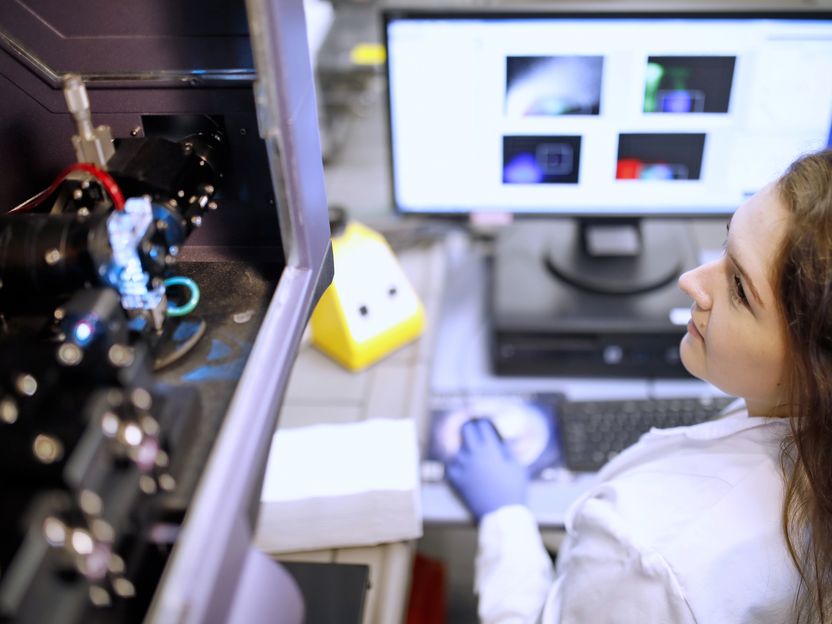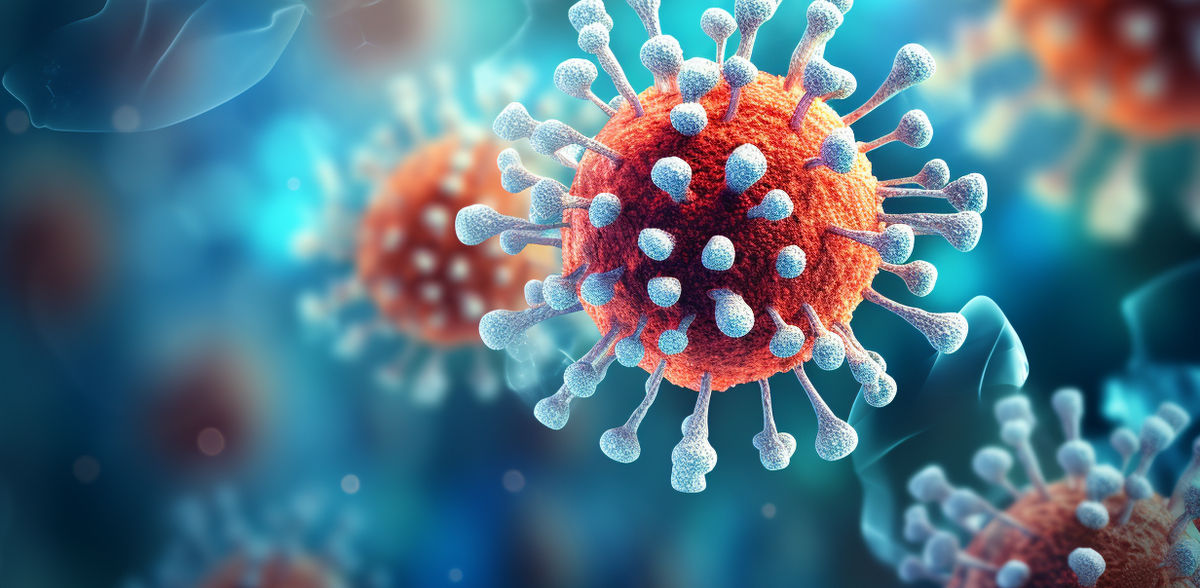Coronavirus vaccination: body builds immune memory in organs
Memory cells in the liver, kidneys, and lungs
One shot in the arm, and the whole body is protected. But how? For one thing, the immune system produces antibodies and cells that patrol the entire organism by traveling through the bloodstream. For another, as shown by a recent Charité – Universitätsmedizin Berlin study of the mRNA coronavirus vaccines, the body builds local immune memory in various organs. According to the findings, published in the Journal of Clinical Investigation, the immune memory cells are more numerous in the organs than in the blood. They also have enhanced antiviral defense functions.

An instrument known as a flow cytometer (left) allowed the researchers to demonstrate the presence of immune memory cells.
© Charité | Arne Sattler
The researchers were following a suspicion: For some time now, animal model studies have indicated that the majority of the cells involved in immune memory after an infection do not circulate in the blood, but instead take up residence inside the organs themselves, where they provide local protection. The same process is presumed to take place after vaccination. But proving this in humans is no trivial matter. “To do that, you need tissue from many different individuals with known and comparable vaccination histories, and if at all possible, with no history of infection with that pathogen,” explains Prof. Katja Kotsch of the Department of General and Abdominal Surgery at Charité, who led the study. The coronavirus pandemic, with the many vaccinations performed, has now made it possible to obtain the necessary samples.
Memory cells in the liver, kidneys, and lungs
For the study, the researchers examined tissue taken from various organs during medically necessary operations such as surgery to remove tumors. The samples came from 61 people, each of whom had received two or three doses of an mRNA vaccine for coronavirus several months before the procedure, independent of their surgery. The majority of them had not yet had Covid at the time.
By stimulating and staining specific immune cells, the team of researchers were able to demonstrate that a kind of cells known as CD4-positive T helper cells targeting SARS-CoV-2 were present in multiple tissue types. These immune memory cells ensure that other immune cells produce the right kinds of antibodies against the pathogen as soon as it is detected in the body. They are also presumed to help fight the virus directly.
The researchers found these immune memory cells not only in the spleen and bone marrow – tissues where immune cells typically mature or are produced – but also in the liver, kidneys, and lungs. “These data confirm our suspicion that following vaccination, the body builds immune memory that remains stable for months, including in tissues located far from the injection site,” says Dr. Arne Sattler, an immunologist and part of Kotsch’s team. He also shares corresponding authorship of the study with her. “We have now demonstrated this for the mRNA vaccines for coronavirus, but we assume similar processes also take place after other vaccinations. Further studies will be needed to corroborate that, though.”
Organ immune memory formed largely independent of age
A comparison with blood samples taken from the same patients showed that significantly more immune memory cells took up residence in the kidneys, liver, and lungs than continued to patrol the body through the bloodstream. The messenger molecules released by the cells present in the organs are also suggestive of more pronounced antiviral properties. Sattler sums up: “Our data show that the immune memory in the organs is functionally superior to that in the blood. What, exactly, that means for the immune protection of the organs isn’t easy to tell, because the exact protective function of individual immune cells in the human body is hard to determine. However, observations in the animal model suggest that these kinds of local, potent T cells are more effective at fighting off pathogens.”
And another difference in immune memory also emerged between the organs and the blood: The number of protective immune cells that migrated to the organs was similar, regardless of the age of the people who had been vaccinated. By contrast, older patients had fewer immune memory cells circulating in their blood than younger ones. “This means that in older people, the way the body forms immune memory in the organs following vaccination for coronavirus is similar in numbers to the levels found in young people,” Kotsch says. “According to our data, the memory cells in the organs persist for at least several months. Whether the immune memory remains stable in the tissue beyond that, possibly for years, is a subject for further studies.”
Original publication
Other news from the department science
Most read news
More news from our other portals
See the theme worlds for related content
Topic world Antibodies
Antibodies are specialized molecules of our immune system that can specifically recognize and neutralize pathogens or foreign substances. Antibody research in biotech and pharma has recognized this natural defense potential and is working intensively to make it therapeutically useful. From monoclonal antibodies used against cancer or autoimmune diseases to antibody-drug conjugates that specifically transport drugs to disease cells - the possibilities are enormous

Topic world Antibodies
Antibodies are specialized molecules of our immune system that can specifically recognize and neutralize pathogens or foreign substances. Antibody research in biotech and pharma has recognized this natural defense potential and is working intensively to make it therapeutically useful. From monoclonal antibodies used against cancer or autoimmune diseases to antibody-drug conjugates that specifically transport drugs to disease cells - the possibilities are enormous























































